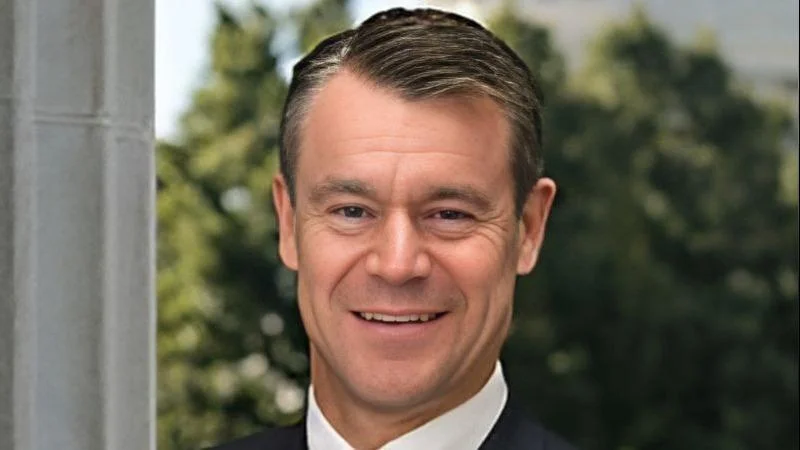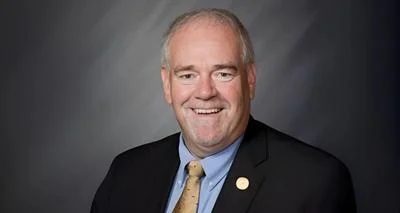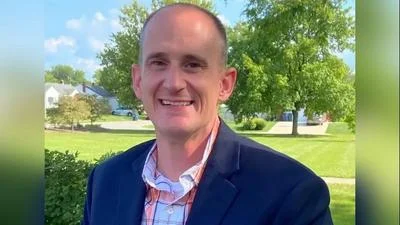Senator Todd Young, US Senator for Indiana | Official U.S. Senate headshot
Senator Todd Young, US Senator for Indiana | Official U.S. Senate headshot
Senator Todd Young of Indiana has raised concerns about the potential threats posed by foreign powers in the realm of biotechnology. In a column originally published in Roll Call, Young highlighted that Russia is reconstructing a significant biological weapons research center, while China maintains substantial involvement in critical U.S. biotech supply chains.
Young emphasized the strategic importance of biotechnology, noting its capacity to transform economies and national security. He stated, "If the United States does not lead in this area, our adversaries will, risking a future in which biotechnology undermines — rather than supports — our global priorities."
As chair of the National Security Commission on Emerging Biotechnology (NSCEB), Young is leading efforts to evaluate both opportunities and threats from these technologies. The commission plans to release a report next year for Congress detailing necessary actions to bolster America's leadership position globally.
The senator pointed out vulnerabilities within the U.S. biotechnology supply chain due to dependence on Chinese products and services. The recently passed BIOSECURE Act aims to address this issue by reducing reliance on foreign entities.
"The CCP knows this and sees biotechnology as an economic battleground with the West," Young remarked. He proposed that enhancing domestic production could create jobs and strengthen economic resilience.
Young advocated for supporting skills training across states to enable Americans to pursue careers in biotechnology, emphasizing Indiana's potential benefits from such growth. He also called for reducing regulatory barriers that hinder biotechnological innovation.
Collaborating with international allies was another focal point for Young, who argued against adopting China's methods of data extraction: "We won’t beat China by acting like China." Instead, he urged leveraging private sector strengths and forming data-sharing agreements with allied nations.
Highlighting potential defense applications of biotechnology, Young envisioned scenarios like biomanufacturing better armor or infrastructure in conflict zones: "It’s not science fiction; it’s a future we should be working for now."
He criticized current federal government readiness regarding global biotech competition and called for policy reforms to support innovation and secure supply chains domestically. This aligns with NSCEB's forthcoming 2025 Final Report focus areas.
In conclusion, Senator Young stressed the necessity of safeguarding American leadership in what he terms the Age of Biology: "Policymakers must protect and promote American biotechnology to ensure the United States leads."






 Alerts Sign-up
Alerts Sign-up